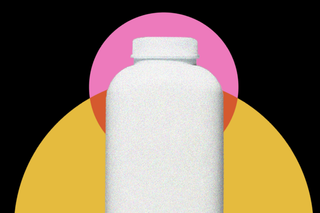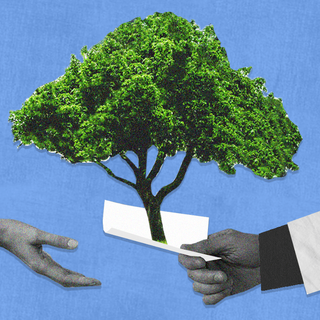
Johnson & Johnson’s Baby Powder Is Facing More Than 30,000 Lawsuits Globally
J&J is facing more than 30,000 lawsuits globally from women who claim to have developed ovarian cancer after using the company’s baby powder.

Johnson & Johnson (J&J) — an American multinational corporation — is a household name courtesy of its baby products. Now, it may have to halt its sales worldwide. The company has more than 30,000 lawsuits against it globally — from women who claim to have developed ovarian cancer after using the company’s baby powder. Even its “No More Tears” shampoo has drawn flak due to allegations of cancer-causing substances found in it.
“Millions of us have been exposed to [Johnson’s Baby Powder] at some point during our lifetimes. The product has been on the market for more than 100 years… Over the past few years, the company has been on the losing side of several similar legal proceedings, resulting in awards totaling hundreds of millions of dollars. Thousands of women are additionally poised to sue J&J based on a similar set of legal arguments,” reads a 2019 article by Dr. Milton Parker, a celebrated American cardiologist.
Talcum, or talc, the softest-known mineral, is used in a number of cosmetic products due to its ability to absorb moisture and keep skin dry. When used as a powder, it also helps reduce friction and was, therefore, used in J&J’s baby powder to prevent diaper rashes. However, in its natural form, it can sometimes be contaminated with asbestos due to their proximity inunderground deposits. Asbestos is a known carcinogen, or cancer-causing substance. J&J’s saga of manufacturing a product proven to harm people reveals so many people across the globe placed their faith in a product that may have actively harmed us.
A Reuters report from December 2018 had alleged that J&J “knew for decades” that its talc-based product contains cancer-causing asbestos — but “kept that information from regulators and the public.” The Reuters team examined J&J’s internal documents and found “at least three tests by three different labs from 1972 to 1975 had found asbestos in its talc — in one case at levels reported as ‘rather high.'” J&J termed this investigation as “one-sided, false and inflammatory.”
In 2020, the U.S. Food and Drug Administration (FDA) detected “sub-trace levels of chrysotile asbestos contamination” in its powder — leading the company to recall 33,000 bottles of talcum powder “out of an abundance of caution.” This led to a decline in demand for its products, forcing the company to withdraw its baby powder from markets in the U.S. and Canada.
Related on The Swaddle:
Alarming New Study Finds Baby Poop Is Loaded With Microplastics
Following the Reuters report, Indian authorities, too, had asked J&J to stop using its already stocked raw materials for manufacturing its baby powder in the country until test results can successfully prove they don’t contain asbestos. The ban was lifted two months later in February 2019 after tests by the Indian government found no contamination.
However, the company’s relief didn’t last long since just the next month, drug inspectors in Rajasthan found formaldehyde — a “probable human carcinogen” according to the American Cancer Society — in two batches of the company’s “No More Tears” baby shampoo. The commotion died down in June that year though, after the Central Drugs Laboratory (CDL) in Kolkata deemed the shampoo “safe to use.”
The whole affair led India’s nodal child rights body, the National Commission for Protection of Child Rights, to call for standardized testing methods to screen baby products for carcinogens.
This month, yet another report by Reuters found that J&J “created a plan last year to limit the financial bleeding from billions of dollars in jury awards to plaintiffs… [A] covert team would go on to evaluate a strategy to shift all the liability from about 38,000 pending talc cases onto a newly created subsidiary, which would immediately declare bankruptcy… halt[ing] all the litigation and transfer[ing] the cases to bankruptcy court, where plaintiffs would compete for compensation from a limited pool of money.” In other words, the company is actively trying to evade accountability for the harm it has caused its customers for years.
Reuters reported that an internal memo by Chris Andrew, a J&J lawyer, says “It is critical that any activities related to [the covert project], including the mere fact the project exists, be kept in strict confidence.” People involved in the project were advised not to discuss it even with their spouses.
Related on The Swaddle:
‘Worrying’ Levels of Toxic Chemicals Found in Everyday Objects, Places: Study
The existence of the “bad faith” bankruptcy plan doesn’t automatically prove J&J’s products contain carcinogens or that the company has been aware of itfor decades. However, it does speak to the company’s tendency to engage in unfair maneuvers and even keep incriminating information away from the eyes of the public.
The J&J cancer debacle also puts a much-needed spotlight on misleading marketing and lack of awareness among consumers when it comes to engaging with big brands.
A study from 2021, too, which had found “high” levels of extremely toxic chemicals in make-up products such as eyeliners and lipsticks produced by some of the world’s biggest beauty brands, had highlighted the same problem. As Thomas Bruton, a senior scientist with the Green Science Policy Institute in the U.S., who was involved in that study, told The Guardian then, “This is a product that people are spreading on their skin day after day, so there’s really a potential for significant exposure.”
That applies to J&J’s products too, and it’s, perhaps, high time we began listening to the ringing alarm bells.
“It is shocking that products that we know can cause serious illness through contamination with asbestos are still available to buy [across] the world… Any action taken against [J&J], who continue to profit handsomely from the sale of this harmful substance despite knowing its potential effects, is welcome in my book,” Ian Lavery, an MP from the UK, said.
Devrupa Rakshit is an Associate Editor at The Swaddle. She is a lawyer by education, a poet by accident, a painter by shaukh, and autistic by birth. You can find her on Instagram @devruparakshit.
Related


Canadian Doctors Can Now Prescribe ‘Spending Time in Nature’ for Patients’ Mental Health
